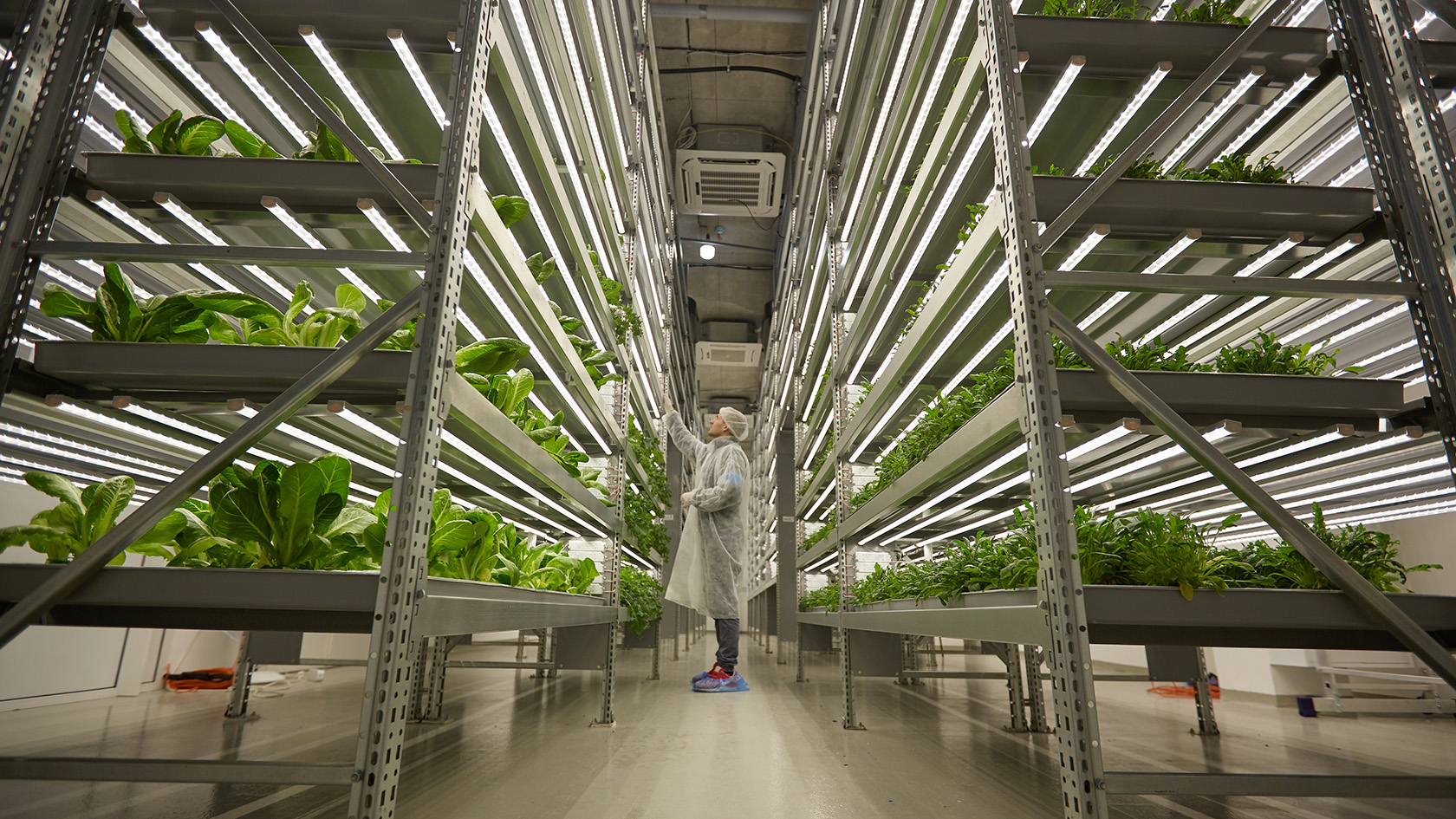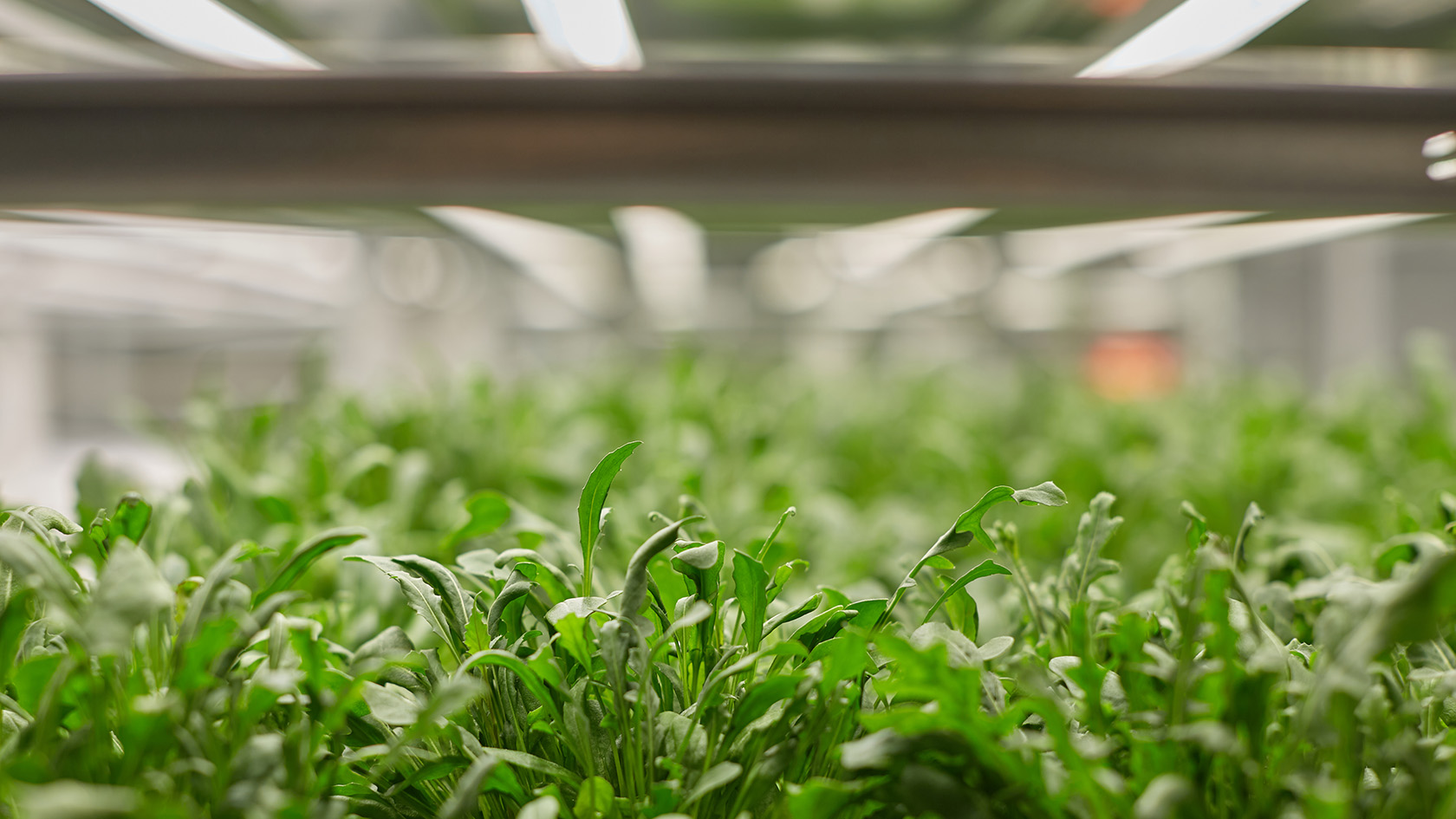
Sign up for breaking news, reviews, opinion, top tech deals, and more.
You are now subscribed
Your newsletter sign-up was successful
Food deserts – places without access to fresh, or good quality affordable food – are a huge problem. They can occur in rural areas, but they're also common in cities, where produce has to travel huge distances to supermarket shelves, where its price is too steep for people on low incomes.
Nowadays organic fruits and vegetables are pretty expensive, because the quantities on offer are very small, and people are willing to pay for them
Alexander Lyskovsky
"I lived in France for a month," says Alexander Lyskovsky, CEO of iFarm – a project that brings intensive indoor farming to cities.
"I was going to the food markets in Paris and buying vegetables and fruit. One day I started to ask sellers about the delivery system of these products to the city, I was interested in how it works. As it turned out, the customers regulate it themselves."
That realization got Lyskovsky thinking about the possibility of people running their own small farms near urban areas. Instead of having to visit a supermarket and buy vegetables flown halfway around the world, customers would also have the option of buying fresh produce grown organically on their doorstep – in just the right quantities.
"Customers could say: 'Oh, what wonderful zucchini, bring me a couple more.' That approach would change the supply chain and increase the quality of the products," he explains.
Preparing the ground
Lyskovsky had no background in farming (his previous work had mainly been in videogame publishing) but he returned to his native Russia picturing a network of greenhouses and vertical farms.
We created a reporting system integrated into the cloud, where agronomists began to enter information for each crop, starting from the weight of the harvested fruit, its colour and density, and ending with notes about how it meets our internal standards
Alexander Lyskovsky
There, he enlisted the help of Maxim Chizhov (now the company's chief business development officer) and Konstantin Ulyanov (now chief construction officer), be began developing his idea.
Sign up for breaking news, reviews, opinion, top tech deals, and more.
The three were later joined by financial executive and independent consultant Yury Fedorov, who is now iFarm's head of Europe.
Despite Lyskovsky's noble goal, progress was far from straightforward. The team's biggest problem was finding high-quality farming equipment for a reasonable price. Their solution was to begin making the gear themselves, and ultimately ended up hiring 30 engineers for the job.
Seeds were also an issue. Many of those the team bought were low grade, and resulted in poor crop yields. iFarm's solution was to work with researchers and universities to develop hybrids specifically for vertical farming.

There was inertia in the farming industry to contend with as well. "While developing the IT system, we realized that agronomists and other specialists related to agriculture sometimes are not very open to innovation," says Lyskovsky. "Some of them still have a lot of notes on paper. Therefore we need to create a simple solution adapted for them.
"As a result, we created a reporting system integrated into the cloud, where agronomists began to enter information for each crop, starting from the weight of the harvested fruit, its colour and density, and ending with notes about how it meets our internal standards. So we reduced the time spent on data collection and automated the process."
Healthy choices
Since then, iFarm has grown into a platform that lets people farm salad, berries and vegetables in minimal space in huge cities, with no pesticides or herbicides, and without the eye-watering price tag that organic produce carries in food deserts. It's a modular system that can be scaled to suit people's needs, and is automated as much as possible.
"Today, most people in the world live in cities, and according to UN forecasts, by 2050, 86% of all residents of developed countries will live in urban areas," Lyskovsky says. "Furthermore, the amount of fertile land decreases every year. After a couple of decades, resources will no longer be enough, and it will become increasingly difficult to provide megacities with fresh food."

New technologies like vertical farming can help give people access to fresh produce, even in congested areas where space and resources are at a premium.
"Ideally, city farming solves several problems: 1) it saves resources; 2) when compared with long-term placement, it saves space; 3) yields of vegetable crops do not depend on weather (external) conditions or human factors," says Lyskovsky.
"The result is more affordable organic foods, produced closer to home. There are no extra charges of intermediaries and surcharges for transportation."
Future farming
iFarm now has five greenhouses and vertical farms in Russia, and is due to open a European pilot facility in April 2019. This will be part showroom and part farm, demonstrating how salads, basil, kale, rocket, kale, berries and flowers can be grown intensively indoors.
Lyskovsky is looking forward to the challenges of these new locations, but he's also excited about experimenting with new and different crops. Future sites will be built near partner restaurants and shops, giving them instant access to fresh produce, and In five years' time the company plans to expand even further into Europe, the Middle East and Africa, as well as Asia, North and Latin America.
The future of food is coming – from the ground up.

Cat is TechRadar's Homes Editor specializing in kitchen appliances and smart home technology. She's been a tech journalist for 15 years, having worked on print magazines including PC Plus and PC Format, and is a Speciality Coffee Association (SCA) certified barista. Whether you want to invest in some smart lights or pick up a new espresso machine, she's the right person to help.